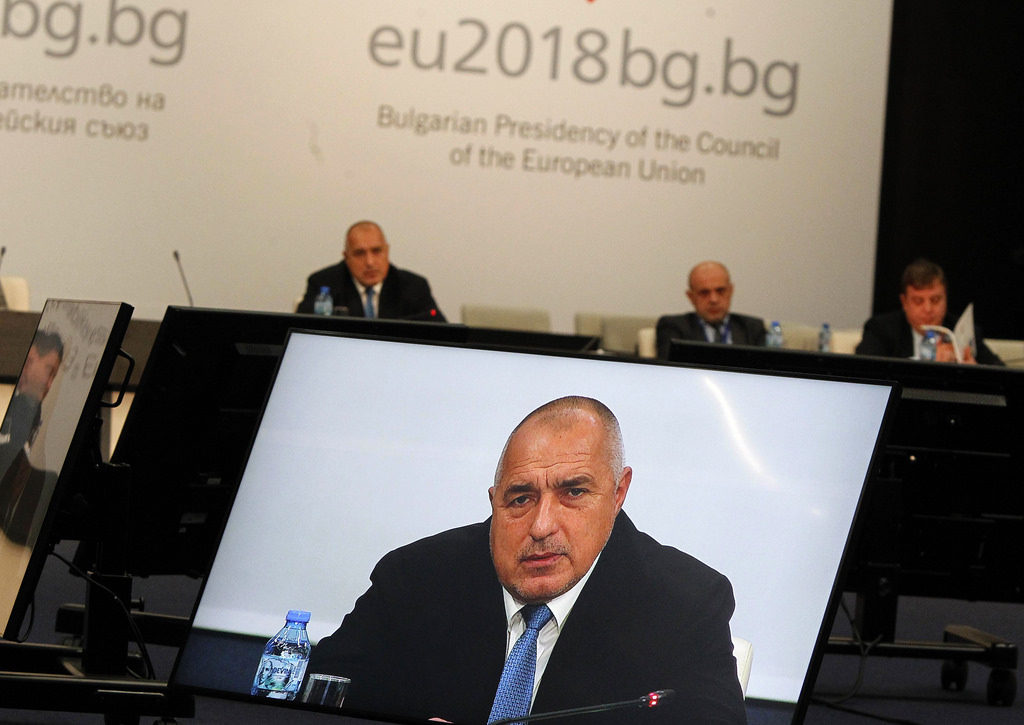Doing Missions in the Spirit in 2018
April 20, 2018 by Cup&Cross
Filed under Featured, Missions, News, Publication
Mission Test Series:
- Missions Test 1: Mission, Method & Message (2012)
- Missions Test 2: Means, Motive & Opportunity (2012)
- Missions Test 3: Missionary Testament (2012)
MissionSHIFT Series:
- MissionSHIFT (Part 1): Paradoxes in Missions (2011)
- MissionSHIFT (Part 2): Free Will Missions (2011)
- MissionSHIFT (Part 3): WebMissions – The Good, The Bad and The Ugly (2011)
M3 MissionsSeries:
- M3: Missions for the Third Millennium – A Public Position (2010)
- 8 Simple Rules for Doing Missions in the Spirit (2009)
- Church of God Eastern Europe Missions: Leadership, Economics and Culture (2009)
Read also:
- Why I decided to publish Pentecostal Primitivism?
- San Francisco Springs: A Story of Two Churches
- The Story of an Arizona State Quarter
The Sinking of Cross-cultural Bridges and the Collapse of the “Western Theological Corpus”
NEW Book – Sassy Southern Appalachian Mountain Cooking (Paperback) – Large Print
 This cookbook includes 60 traditional Appalachian recipes with an emphasis on dishes of the southern mountainous regions. They are classic and basic recipes, but with a sassy southern flare of flavors.
This cookbook includes 60 traditional Appalachian recipes with an emphasis on dishes of the southern mountainous regions. They are classic and basic recipes, but with a sassy southern flare of flavors.
FREE Shipping on orders over $25
Ancient Recipes of Bulgaria now for Kindle
 Ancient Recipes of Bulgaria, Second Edition
Ancient Recipes of Bulgaria, Second Edition
By Evdokia Krusteva
This cookbook features nearly two dozen truly ancient recipes of Bulgarian cooking. Some of these dishes are distant relatives to ones found in ancient Roman manuscripts believed to have been compiled in the late 4th or early 5th century AD. Others are among those far before the time of Christ. As Bulgaria is a country of oral history, recipes are typically not written, but passed down from one generation to the next by experiencing the method of preparation. With nearly every dish in Bulgarian cooking comes a story and custom. This cookbook attempts to preserve these century year old stories for many years to come so they can continue to be passed down.
Pastor Nicholas Nikolov was born on March 15, 1900
 In 2018, the Pentecostal Union in Bulgaria (Assemblies of God) is celebrating 90 years since its establishment. The story of the Pentecostal movement in Bulgaria is intrinsically connected with the life and ministry of Nicholas Nikolov. Pastor Nikolov was born in Bourgas, Bulgaria on March 15, 1900. His life story unfolds as following:
In 2018, the Pentecostal Union in Bulgaria (Assemblies of God) is celebrating 90 years since its establishment. The story of the Pentecostal movement in Bulgaria is intrinsically connected with the life and ministry of Nicholas Nikolov. Pastor Nikolov was born in Bourgas, Bulgaria on March 15, 1900. His life story unfolds as following:
- 1900 Born in Karnobat near Bourgas, Bulgaria
- 1914 Saved in the Congregational Church in Bourgas
- 1919 Under the ministry of Paul Mishkoff
- 1920 Attended university in New York
- 1921 Baptized with the Holy Spirit
- 1924 Married and working at Bethel
- 1926 Ordained and appointed by AG
- 1927 Led Pentecostal revival in Bourgas, Bulgaria
- 1928 Established the Pentecostal Union of Bulgaria (Assemblies of God)
- 1931 Returned to the States and earned a master’s degree
- 1935 Headed Assemblies of God training school in Gdansk, Poland
- 1938 Returned to Bulgaria after forced out of Poland by the Nazis
- 1939 Returned to the United States after forced out of Bulgaria by the Nazis
- 1941 President of Metropolitan Bible Institute
- 1947 Pastored in North Bergen, NJ
- 1950 President of New England Bible Institute
- 1952 Faculty at Central Bible Institute in Springfield, Missouri
- 1956 Earned a Ph.D. degree from the Biblical Seminary in New York
- 1961 Retired due to sickness
- 1964 Passed to Glory
A Church Assessment Can Change Your Church
March 10, 2018 by Cup&Cross
Filed under Featured, News, Publication, Research
 Failure to thoroughly or consistently review aspects of the church will have a negative impact on the organisation in multiple ways. In contrast, when a church embraces an intentional review process there are a number of benefits:
Failure to thoroughly or consistently review aspects of the church will have a negative impact on the organisation in multiple ways. In contrast, when a church embraces an intentional review process there are a number of benefits:
1. An intentional church assessment process provides key information that can be catalytic for the growth of the church.
2. An intentional church assessment process ensures the church does not drift from its mission.
3. An intentional church assessment process uses the vision as motivation for change.
4. An intentional church assessment process protects the culture by ensuring it is not neglected in the busyness of activity.
5. An intentional church assessment process will identify when the systems or structure are no longer serving the vision.
6. An intentional church assessment process creates accountability for the achievement of strategic goals.
Ancient Recipes of Bulgaria (now on Kindle)
February 15, 2018 by Cup&Cross
Filed under Books, Featured, News, Publication
 This cookbook features nearly two dozen truly ancient recipes of Bulgarian cooking. Some of these dishes are distant relatives to ones found in ancient Roman manuscripts believed to have been compiled in the late 4th or early 5th century AD. Others are among those far before the time of Christ. As Bulgaria is a country of oral history, recipes are typically not written, but passed down from one generation to the next by experiencing the method of preparation. With nearly every dish in Bulgarian cooking comes a story and custom. This cookbook attempts to preserve these hundred year old stories for many years to come so they can continue to be passed down.
This cookbook features nearly two dozen truly ancient recipes of Bulgarian cooking. Some of these dishes are distant relatives to ones found in ancient Roman manuscripts believed to have been compiled in the late 4th or early 5th century AD. Others are among those far before the time of Christ. As Bulgaria is a country of oral history, recipes are typically not written, but passed down from one generation to the next by experiencing the method of preparation. With nearly every dish in Bulgarian cooking comes a story and custom. This cookbook attempts to preserve these hundred year old stories for many years to come so they can continue to be passed down.
Preview and purchase directly on: Amazon Kindle Store
2020 Vision for Bulgarian Evangelical Churches outside of Bulgaria
January 25, 2018 by Cup&Cross
Filed under Featured, News, Publication, Research
 Over a decade ago, after publishing Bulgarian Churches in North America: Analytical Overview and Church Planting Proposal for Bulgarian American Congregations Considering Cultural, Economical and Leadership Dimensions, we purposed to explore the possibility of implementing the church planning program among Bulgarian Diasporas in various destination countries of migration.
Over a decade ago, after publishing Bulgarian Churches in North America: Analytical Overview and Church Planting Proposal for Bulgarian American Congregations Considering Cultural, Economical and Leadership Dimensions, we purposed to explore the possibility of implementing the church planning program among Bulgarian Diasporas in various destination countries of migration.
With this in mind, we carried the vision for establishing 20 Bulgarian churches outside of Bulgaria by the year 2020. Cyprus, the United Kingdom and Canada were among the first to successfully implement our program. Bulgarian migrant communities in France, Italy and especially Spain and Germany followed with great enthusiasm – there are 7 Bulgarian evangelical churches active in Span today, and 18 in Germany.
Of course, not all parts of the program proved to be efficient. The program’s modules and training that was implemented, however, have produced 47 strong church plants thus far and the number is growing every month. The program proposed has been confirmed by the leadership we have received from the Holy Spirit. Our commitment to seize the opportunity and work toward adding more Bulgarian churches by the year 202 has by far surpassed all expectations.
READ ALSO:
- Global Network of Bulgarian Evangelical Churches outside of Bulgaria (2018 Report)
- Unrealized Spiritual Harvest as a Paradigm for Cross-Cultural Ministries among Migrant and Disfranchised Ethnic Groups in America Today
The Bulgarian presidency of the Council of the European Union
January 15, 2018 by Cup&Cross
Filed under Featured, News, Publication
The priorities of the Bulgarian presidency are driven by its motto: ‘United we stand strong’, which is also the motto of the coat of arms of the Republic of Bulgaria. The presidency will work with its partners on unity among the member states and the EU institutions to provide concrete solutions to build a stronger, more secure and solidary Europe. During the next 6 months, the presidency will focus on four key areas: future of Europe and young people, Western Balkans, security and stability and digital economy.
Life and Ministry of Ivan Voronaev (First Edition)
January 10, 2018 by Cup&Cross
Filed under Books, Featured, News, Publication
![51Sa1IcA8OL._SY344_PJlook-inside-v2,TopRight,1,0_SH20_BO1,204,203,200_[1]](https://cupandcross.com/wp-content/uploads/2014/03/51Sa1IcA8OL._SY344_PJlook-inside-v2TopRight10_SH20_BO1204203200_1.jpg) Since we began the research on the Life and Ministry of Ivan Voronaev over a decade ago, several new valuable sources have become available. Among them are never published family correspondence and travelling journals.
Since we began the research on the Life and Ministry of Ivan Voronaev over a decade ago, several new valuable sources have become available. Among them are never published family correspondence and travelling journals.
From Bulgaria, after remaining hidden for over half of a decade during the Communist Regime, the earliest Book of Minutes of the Executive Committee of the Bulgarian Pentecostal Union (1929-1933) has resurfaced. It contains detail information on the 18 Pentecostal congregations started in Bulgarian in 1921-1922 and the establishment of the Pentecostal Union.
In Russia, Zaplishney’s autobiography and a FSB confirmation of the original order for Voroanev’s execution has been discovered. Along with them, several volumes of Sevlag prison papers have shed light on the exile years of the first Pentecostal leaders there.
Now that this new information has been made available to us, a new expanded edition for the 90th Anniversary of the Bulgarian Pentecostal Union in 2018 is in order. With this in mind, we have felt compelled to release the remaining first print Voronaev monograph for a fraction of its value while supplies last.
2018
January 1, 2018 by Cup&Cross
Filed under Featured, News, Publication










